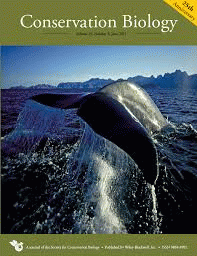We reviewed the evidence on the extent and efficacy of conservation of tropical forest biodiversity for each of the classes of conservation action defined by the new International Union for Conservation of Nature (IUCN) classification. Protected areas are the most tested conservation approach and a number of studies show they are generally effective in slowing deforestation. There is some documentation of the extent of sustainable timber management in tropical forest but little information on other landscape-conservation tactics. The extent and effectiveness of ex situ species conservation is quite well known. Forty-one tropical-forest species now survive only in captivity. Other single-species conservation actions are not as well documented. The potential of policy mechanisms such as international conventions and provision of funds to slow extinctions in tropical forests is considerable but the effects of policy are difficult to measure. Finally interventions to promote tropical conservation by supporting education and livelihoods providing incentives and furthering capacity building are all thought to be important but their extent and effectiveness remain poorly known. For birds the best studied taxon the sum of such conservation actions has averted one-fifth of the extinctions that would otherwise have occurred over the last century. Clearly tropical forest conservation works but more is needed as is critical assessment of what works in what circumstances if mass extinction is to be averted.
DOI:
http://dx.doi.org/10.1111/j.1523-1739.2009.01334.x
Altmetric score:
Dimensions Citation Count:























